Testing
Writing Unit Tests using Pytest & Asyncio.
Hello everyone! Welcome to the PyCharm FastAPI Tutorial Series.
In this tutorial we are going to work on Unit Testing using Pytest and Asyncio.
AnyIO
As you can see on my screen, recently FastAPI introduced AnyIO. AnyIO is an asynchronous networking and concurrency library that works on top of either asyncio or Trio.
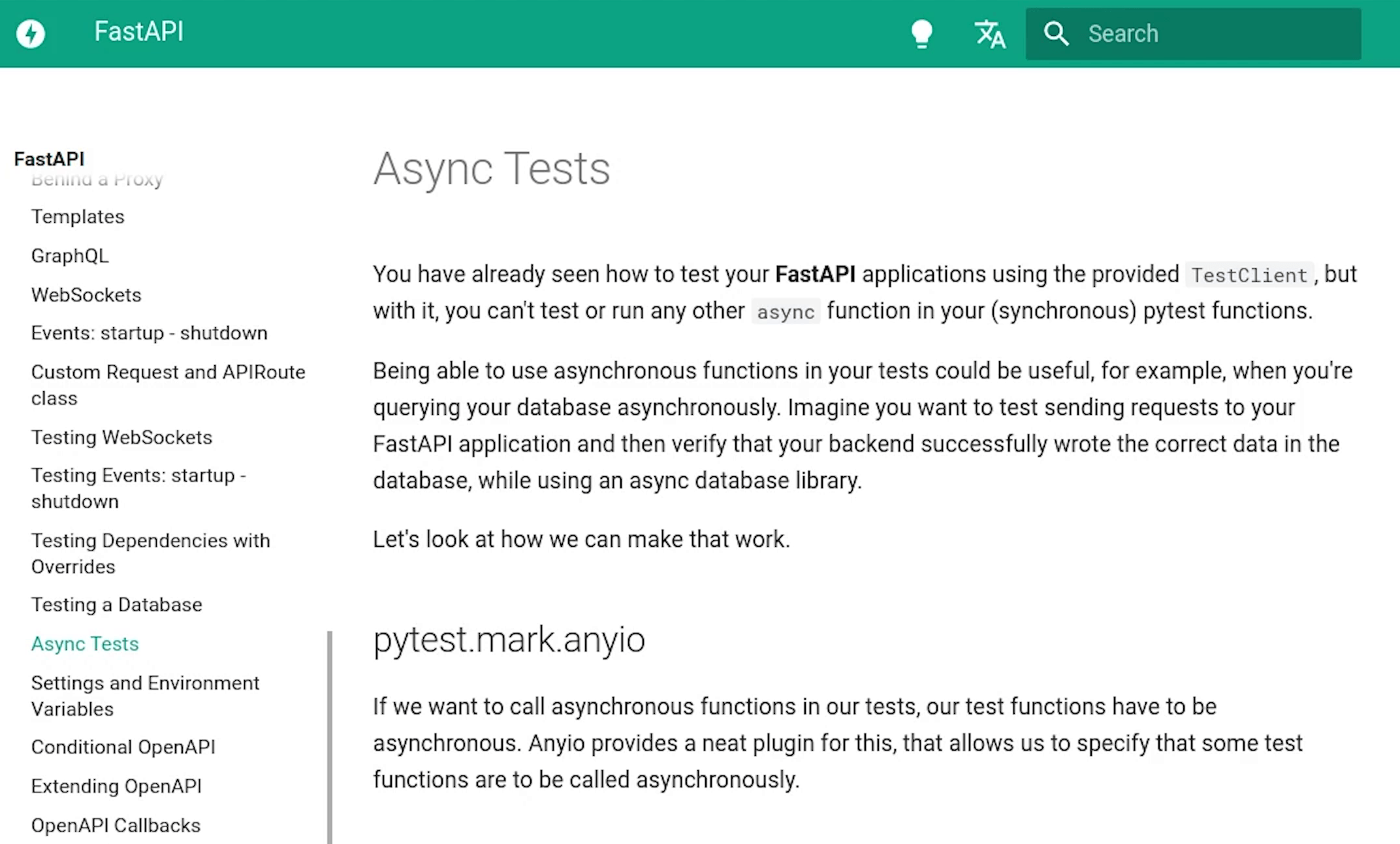
Installing Dependencies
We won’t be working on anyio because our video was recorded earlier, and we will be using the pytest-asyncio module.
pytest-asyncio is an Apache2 licensed library, written in Python, for testing asyncio code with pytest.
Along with pytest we also use HTTPX.
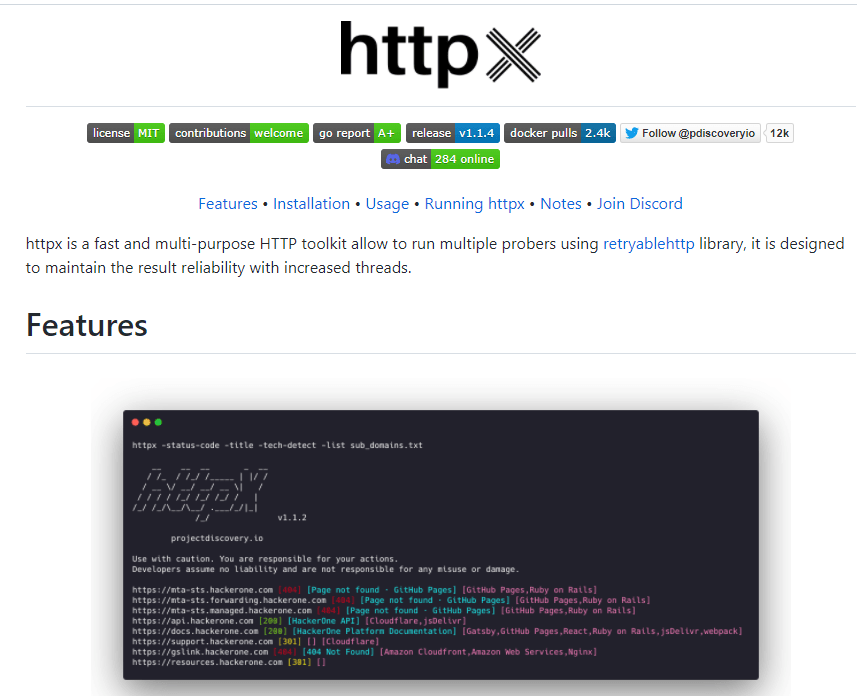
HTTPX is a fully featured fast HTTP client for Python 3, which provides sync and async APIs, and support for both HTTP/1.1 and HTTP/2.
Do check the official documentation, it has tons of cool examples.
Even if you don’t want to use asyncio, you can work with the TestClient which is backed by Starlette.
Reference :
There is an interesting article written by Anthony Shaw : async test patterns for Pytest, do check that out.
Setting Up
Coming back to PyCharm, as you know for testing we need to have a separate test database which we have already created.
I will create a new package called tests.
I will create a new file under root and name it conf_test_db. Here we are going to set up the engine for our test database.
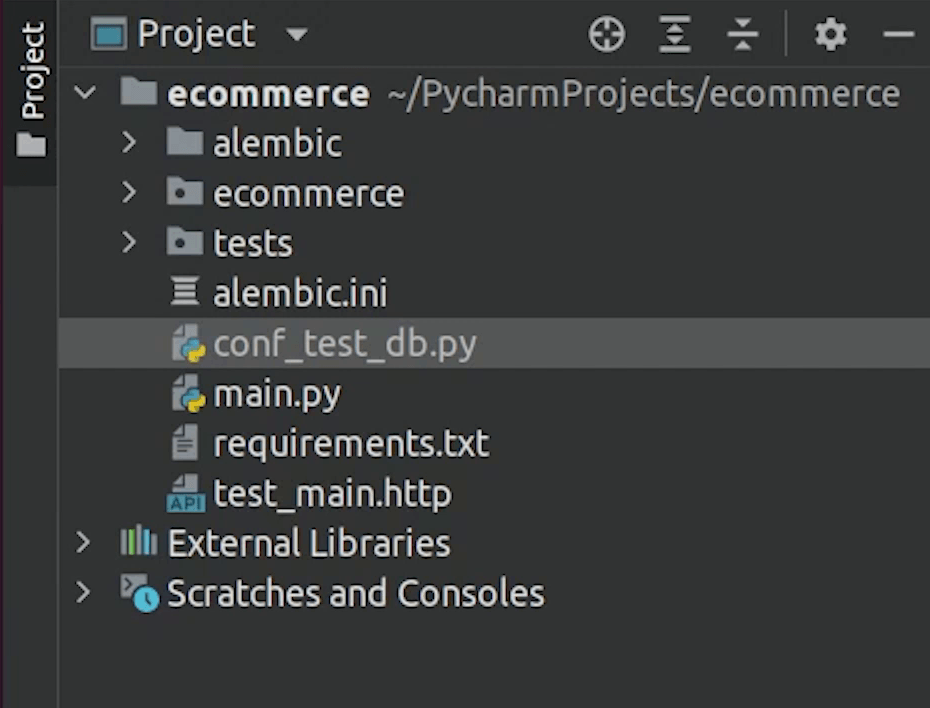
Let me do the necessary imports.

We are going to provide the test database name along-with other db credentials.
I will make sure whenever the test begins the tables are dropped and re-created again.
conf_test_db.py
from sqlalchemy import create_engine
from sqlalchemy.orm import sessionmaker
from ecommerce import config
from ecommerce.db import Base, get_db
from main import app
DATABASE_USERNAME = config.DATABASE_USERNAME
DATABASE_PASSWORD = config.DATABASE_PASSWORD
DATABASE_HOST = config.DATABASE_HOST
DATABASE_NAME = config.TEST_DATABASE_NAME
SQLALCHEMY_DATABASE_URL = f"postgresql://{DATABASE_USERNAME}:{DATABASE_PASSWORD}@{DATABASE_HOST}/{DATABASE_NAME}"
engine = create_engine(SQLALCHEMY_DATABASE_URL)
TestingSessionLocal = sessionmaker(autocommit=False, autoflush=False, bind=engine)
Base.metadata.drop_all(bind=engine)
Base.metadata.create_all(bind=engine)
def override_get_db():
try:
db = TestingSessionLocal()
yield db
finally:
db.close()
app.dependency_overrides[get_db] = override_get_db
As you can see we are trying to override the dependencies.
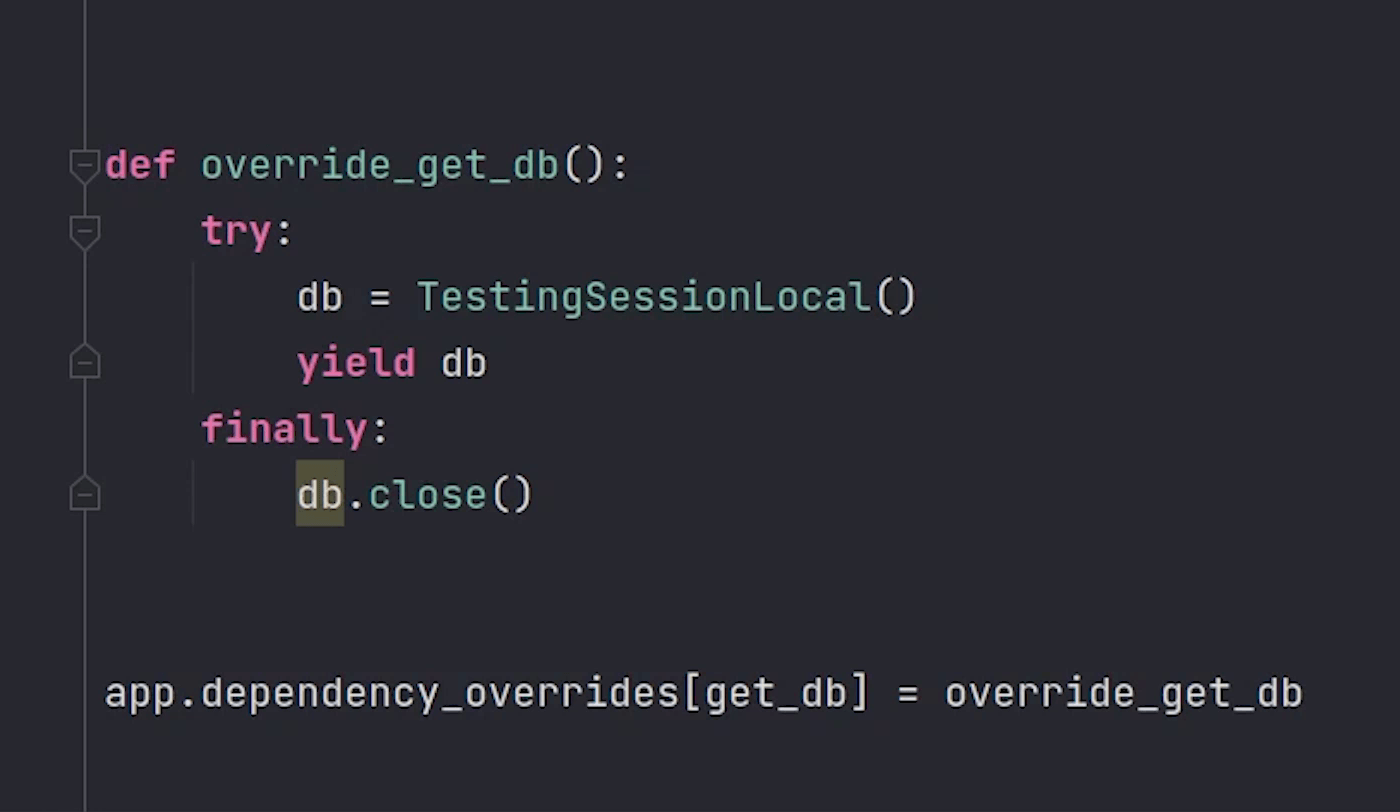
As per the FastAPI documentation: There are some scenarios where you might want to override a dependency during testing.
You don't want the original dependency to run (nor any of the sub-dependencies it might have). Instead, you want to provide a different dependency that will be used only during tests (possibly only some specific tests), and will provide a value that can be used where the value of the original dependency was used.
Next, we will be creating a file name conftest under tests directory. This will contain the base config for our pytest.
I will do necessary imports and along-with that I will create a pytest fixture which will create a dummy user before our test runs.

The purpose of a test fixture is to ensure that there is a well known and fixed environment in which tests are run so that results are repeatable.
Examples of fixtures:
- Loading a database with a specific set of data
- Copying a specific known set of files
- Preparation of input data and set-up/creation of fake or mock objects
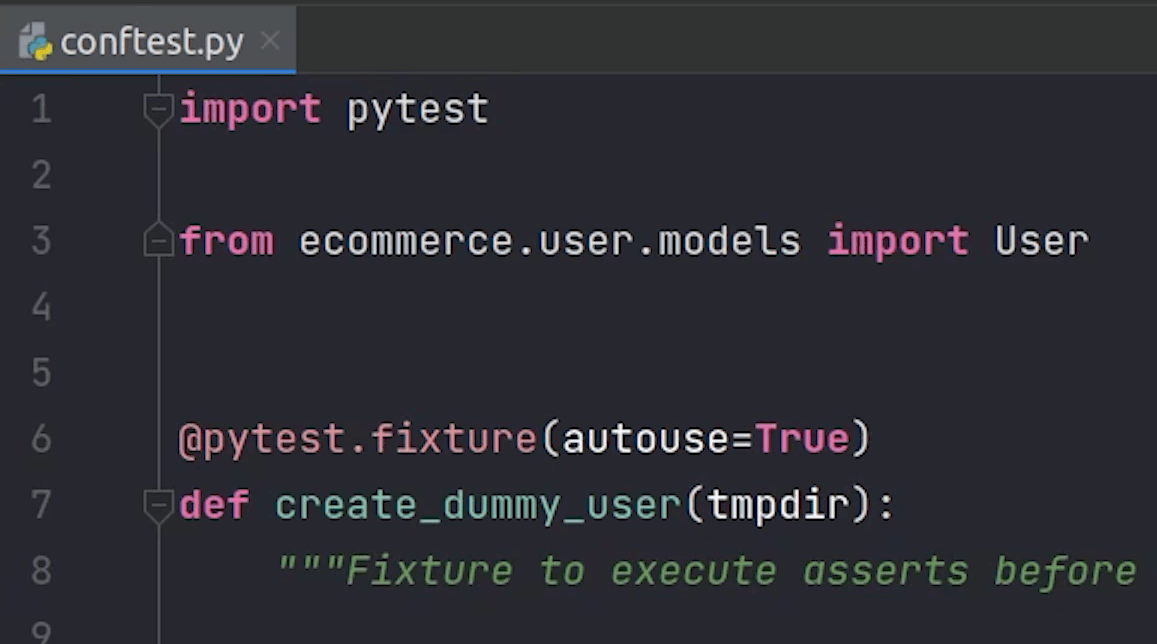
You can see we have set auto use to True. As per pytest documentation, Sometimes you may want to have a fixture (or even several) that you know all your tests will depend on. “Autouse” fixtures are a convenient way to make all tests automatically request them.
And finally after the tests are done we will remove the user from the db.
conftest.py
import pytest
from ecommerce.user.models import User
@pytest.fixture(autouse=True)
def create_dummy_user(tmpdir):
"""Fixture to execute asserts before and after a test is run"""
# Setup: fill with any logic you want
from conf_test_db import override_get_db
database = next(override_get_db())
new_user = User(name='John', email='john@gmail.com', password='john123')
database.add(new_user)
database.commit()
yield # this is where the testing happens
# Teardown : fill with any logic you want
database.query(User).filter(User.email == 'john@gmail.com').delete()
database.commit()
We are done now with the configuration. Let’s begin our first test.
Begin Testing
I will create different modules and place them under tests. We will begin first with users.
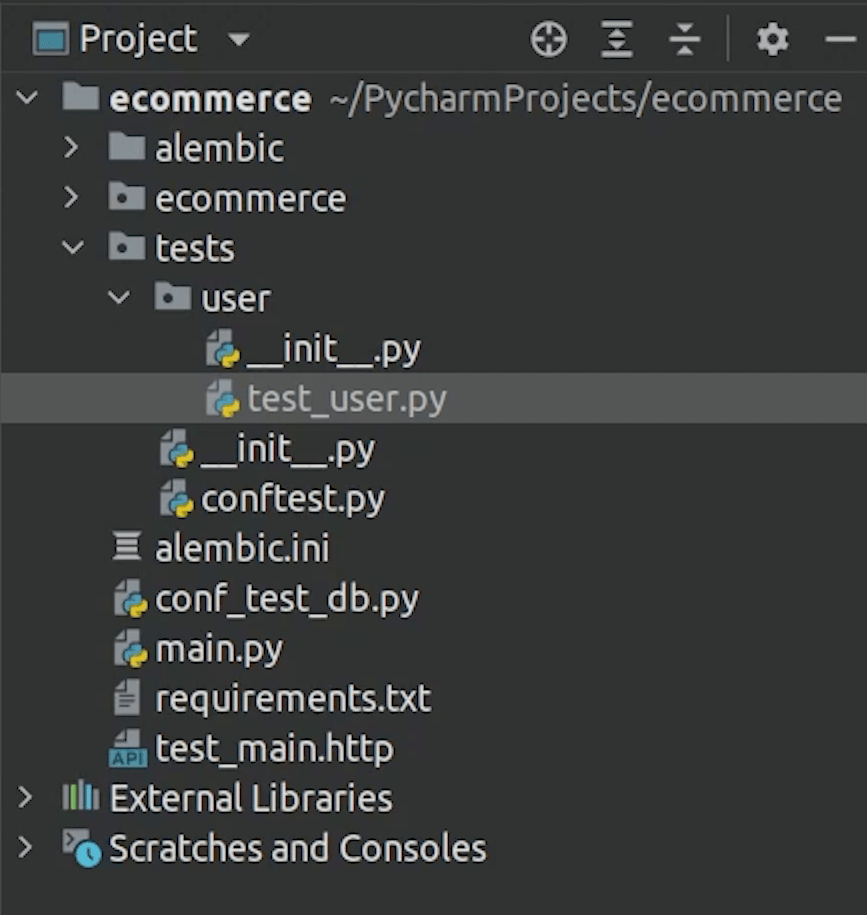
I will do the necessary imports, and then I will create a function to test all users.
I will retrieve the access token and pass it in the api headers. If everything is good then I will get a 200 status code. It’s a very basic test of what I am trying to do.
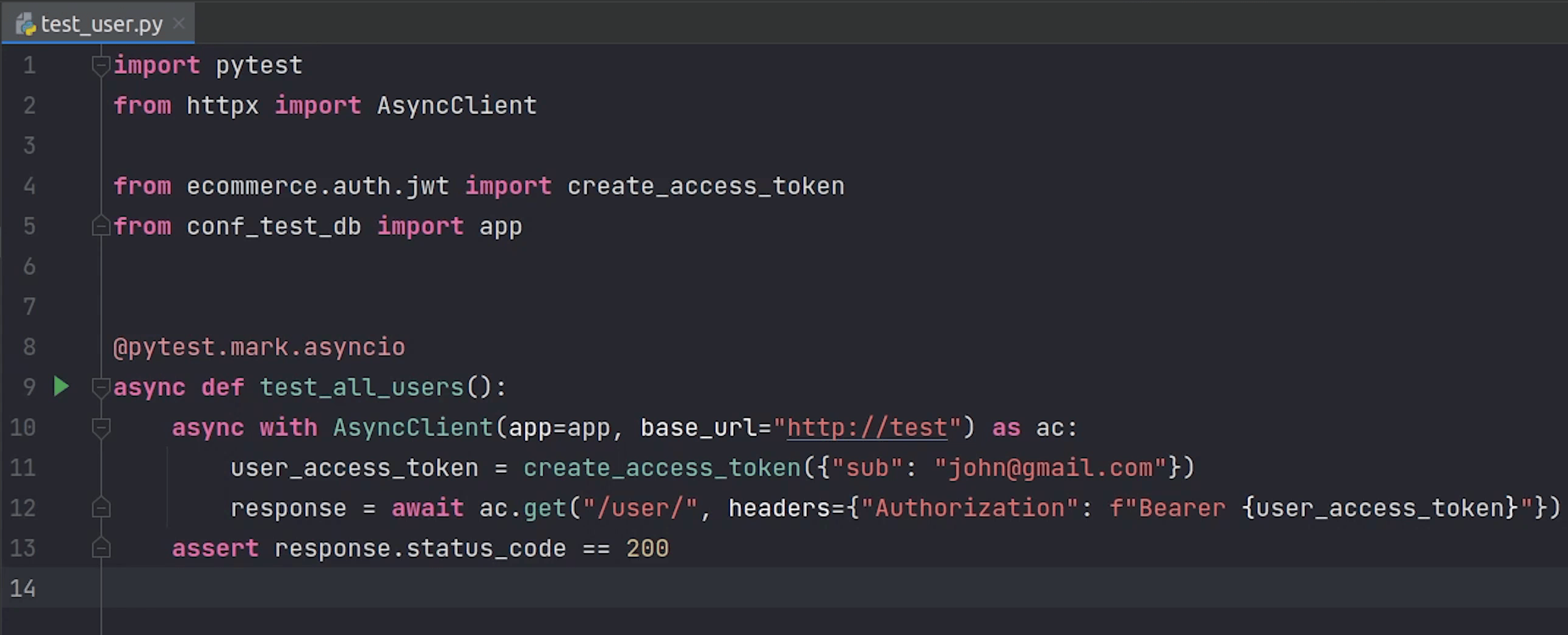
test_user.py
import pytest
from httpx import AsyncClient
from ecommerce.auth.jwt import create_access_token
from conf_test_db import app
@pytest.mark.asyncio
async def test_all_users():
async with AsyncClient(app=app, base_url="http://test") as ac:
user_access_token = create_access_token({"sub": "john@gmail.com"})
response = await ac.get("/user/", headers={'Authorization': f'Bearer {user_access_token}'})
assert response.status_code == 200
Next, I will open up Terminal and type pytest.
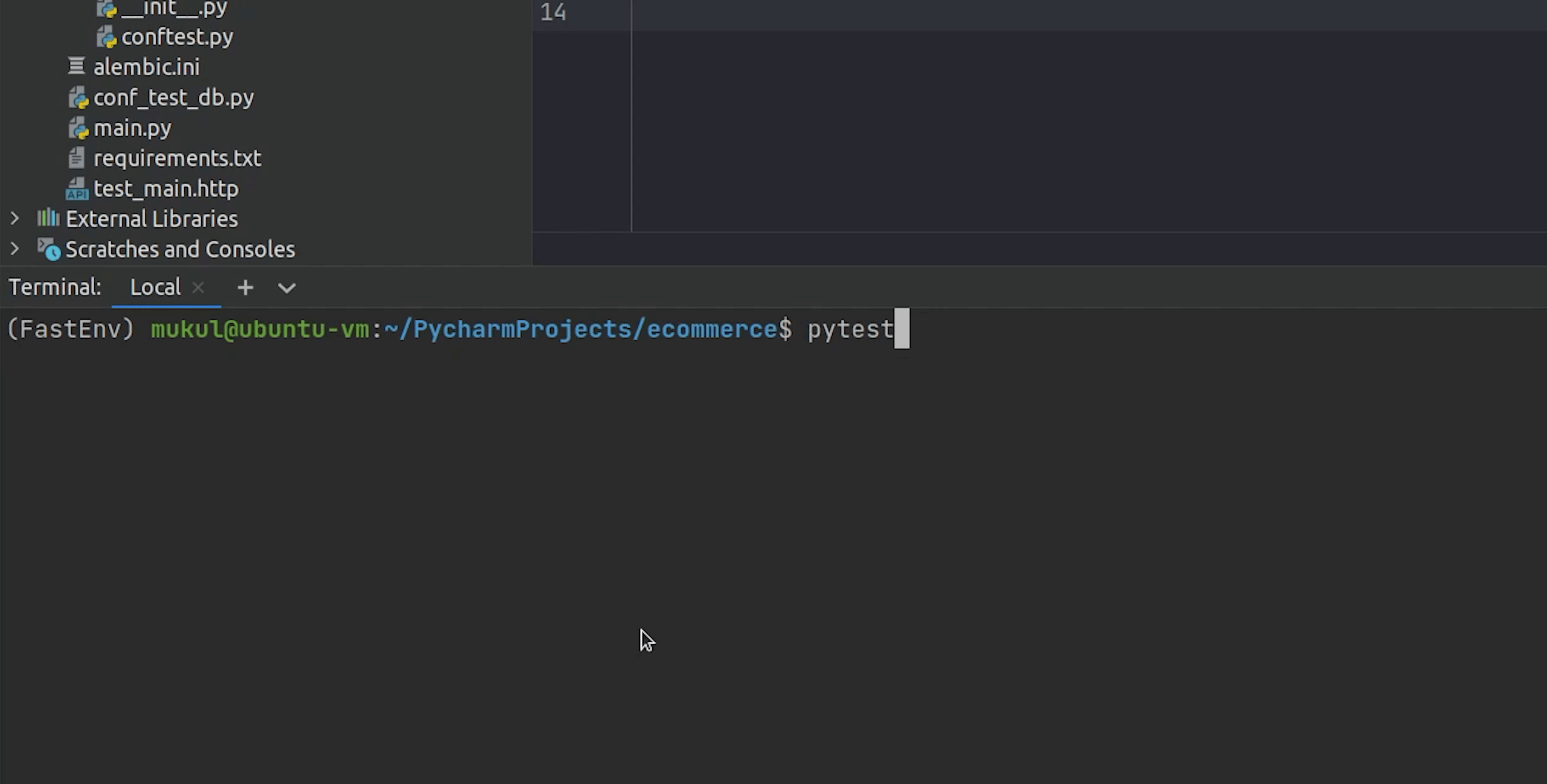
As you can see the test has been successfully passed.

Let me now try to do it through PyCharm instead of using the terminal.
I will click on Run and then Edit Configurations.
I will click on the plus (+) sign and add pytest.
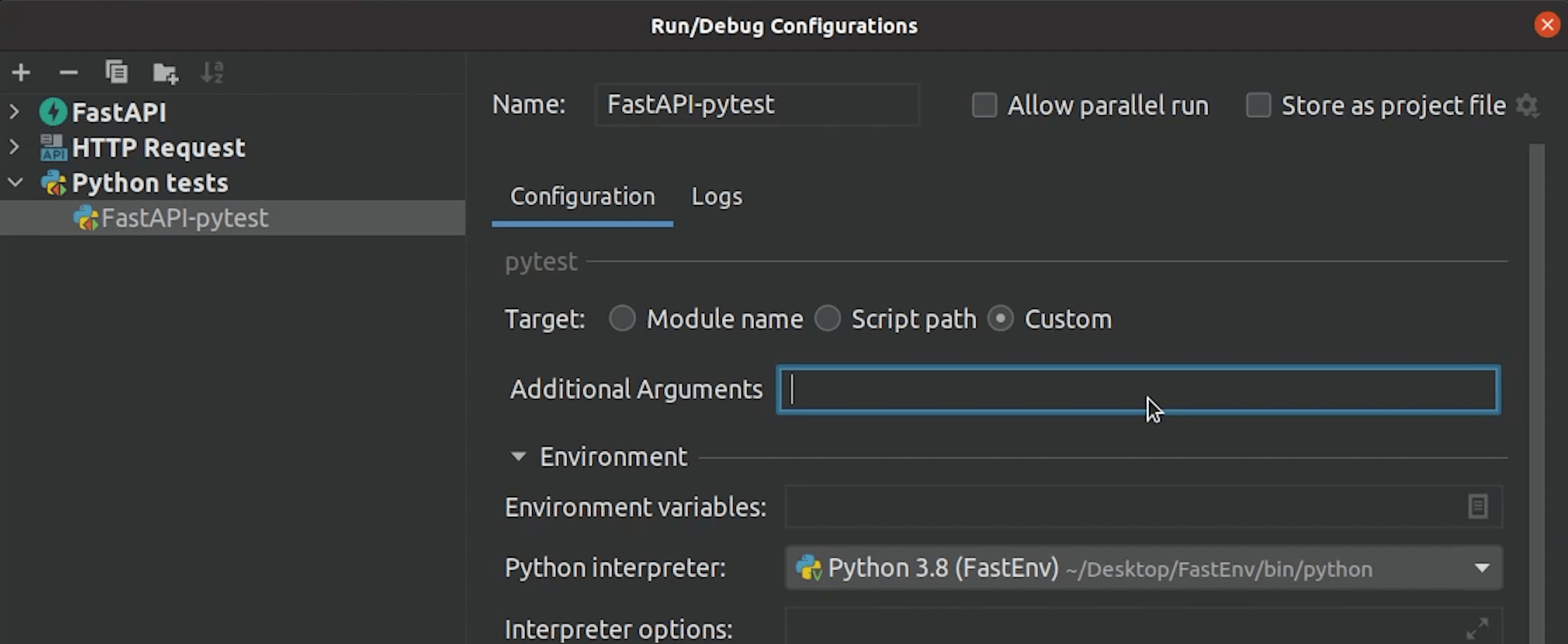
I am going to provide a name and set target to custom and finally update the working directory. Make sure it’s pointing to the correct python interpreter.
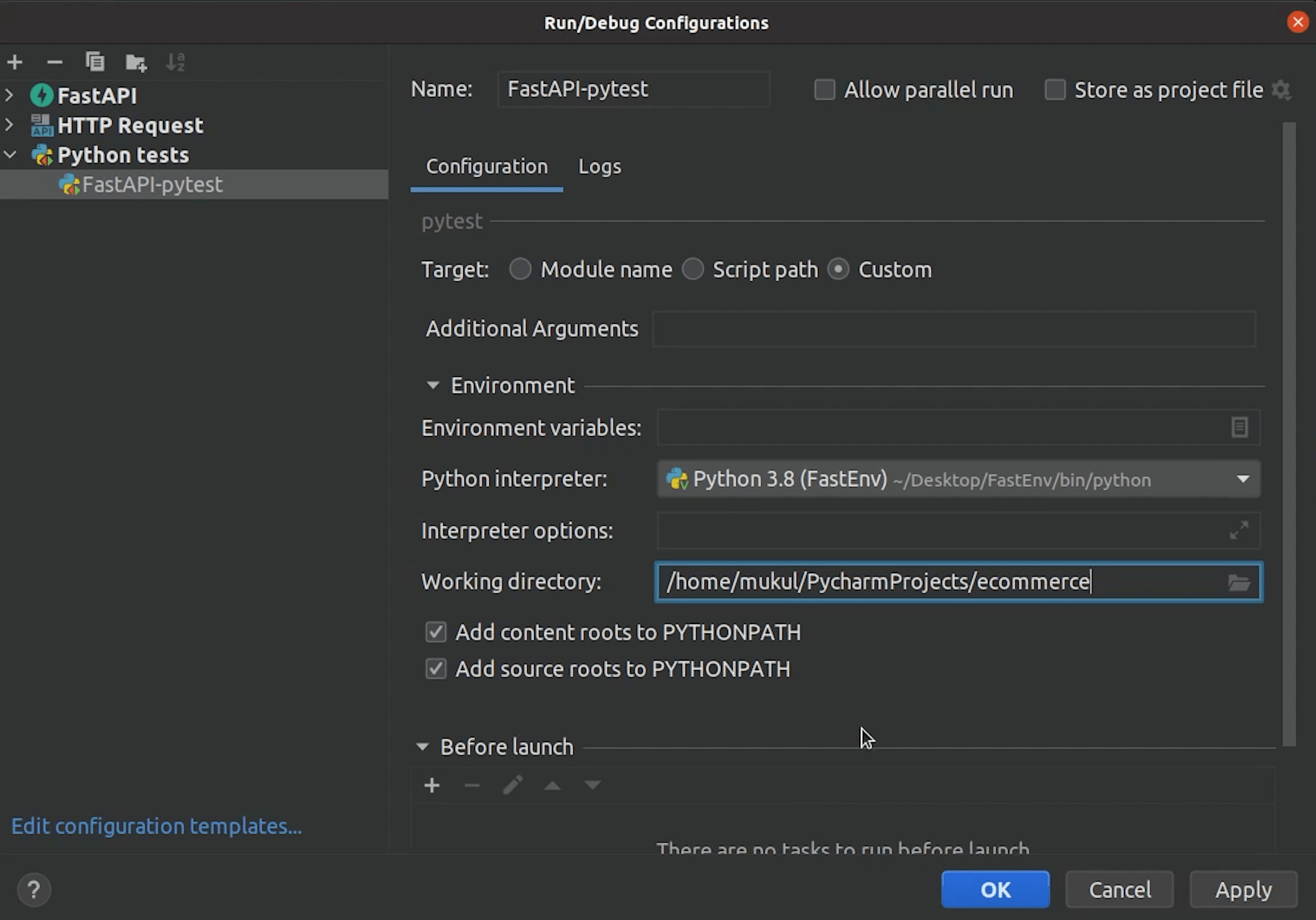
And finally click on Apply then OK.
And yes, it works perfectly fine. We don’t need to manually type again.
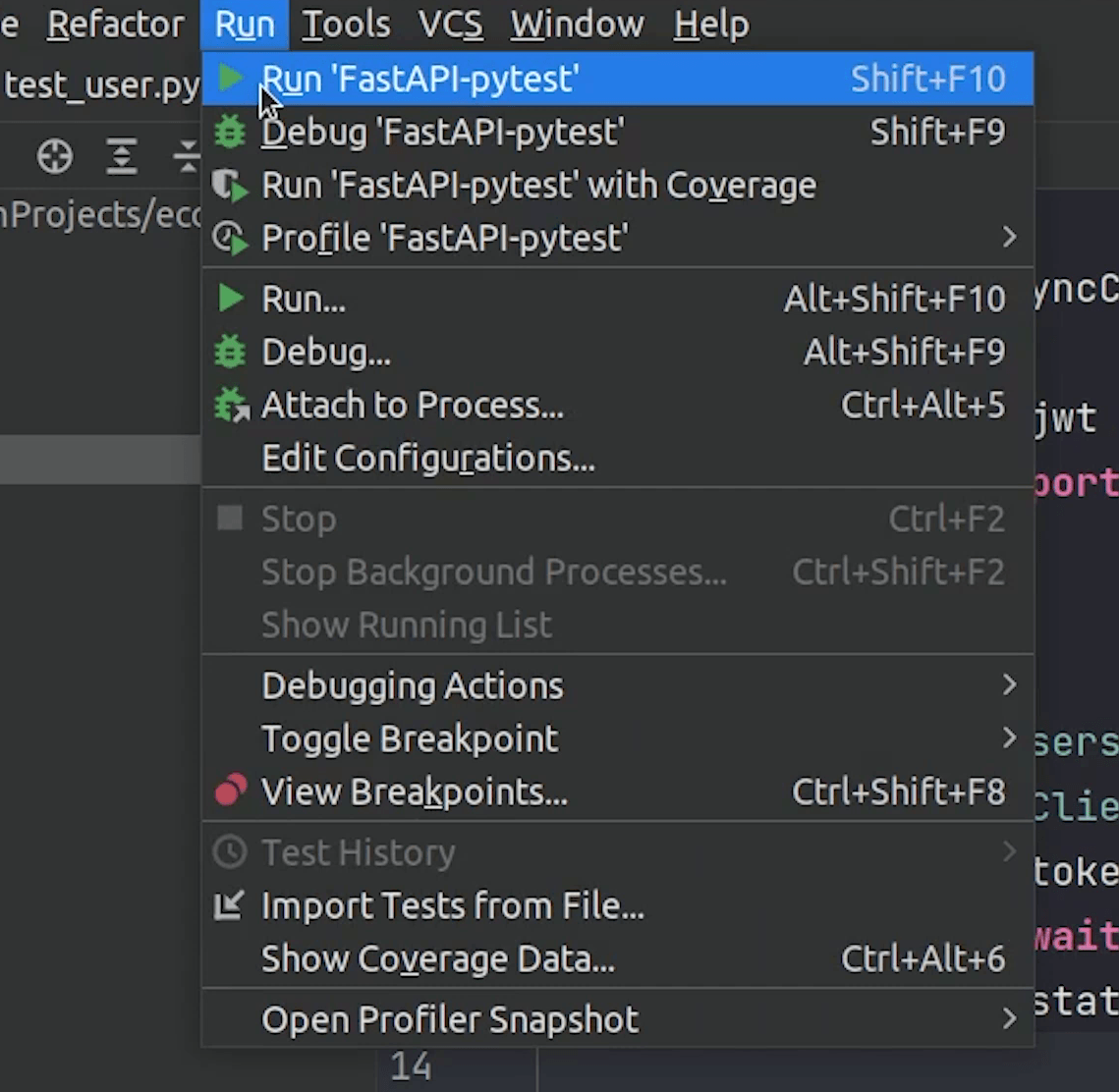
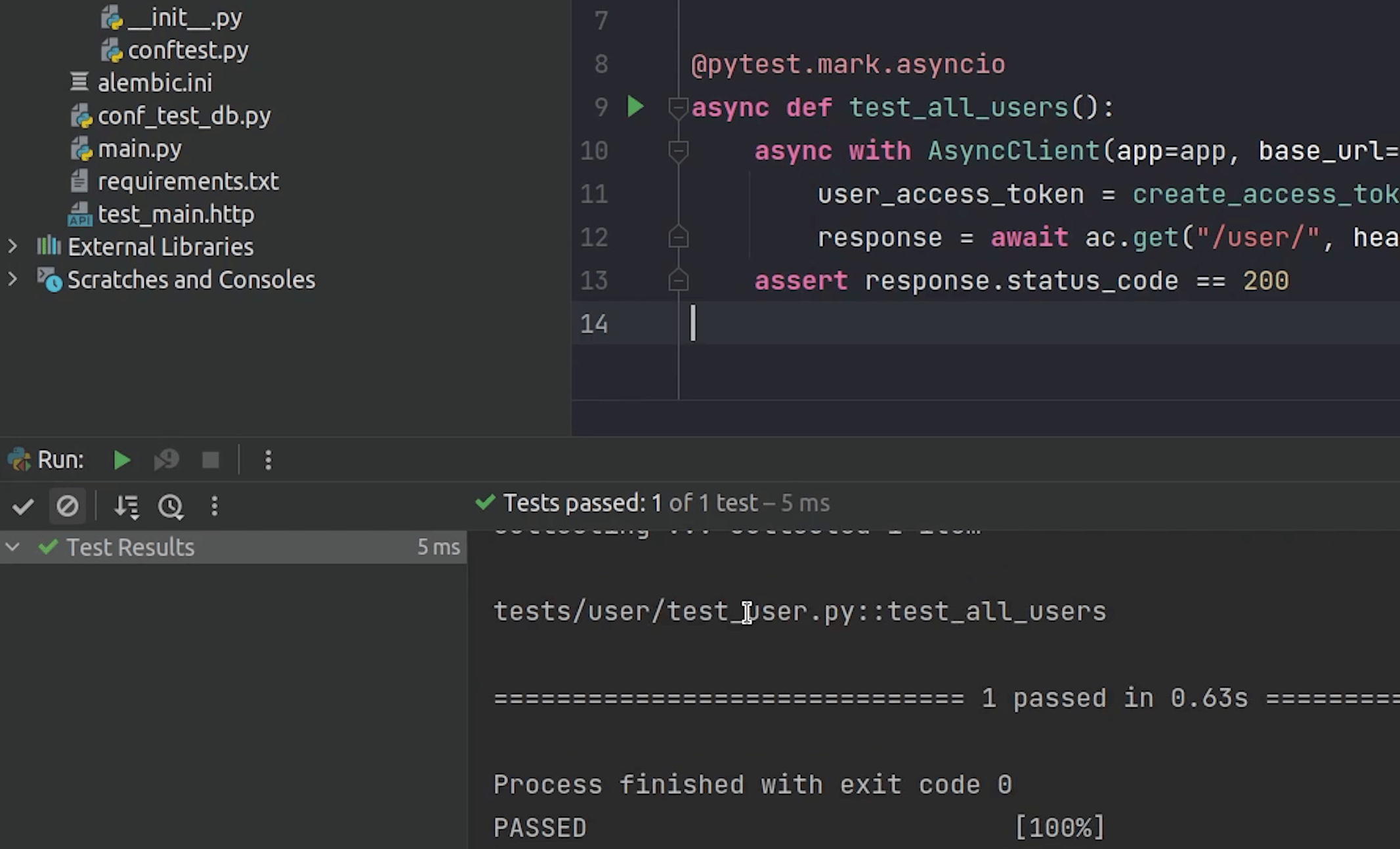
Let’s cover the remaining modules.
We will now write the unit test for the user registration.
I am using a faker library, which helps me in getting dummy names, email, password etc. Faker is basically a Python package that generates fake data for you.
pip install Faker==8.12.0
Make sure to sync the requirements.txt from my source code.
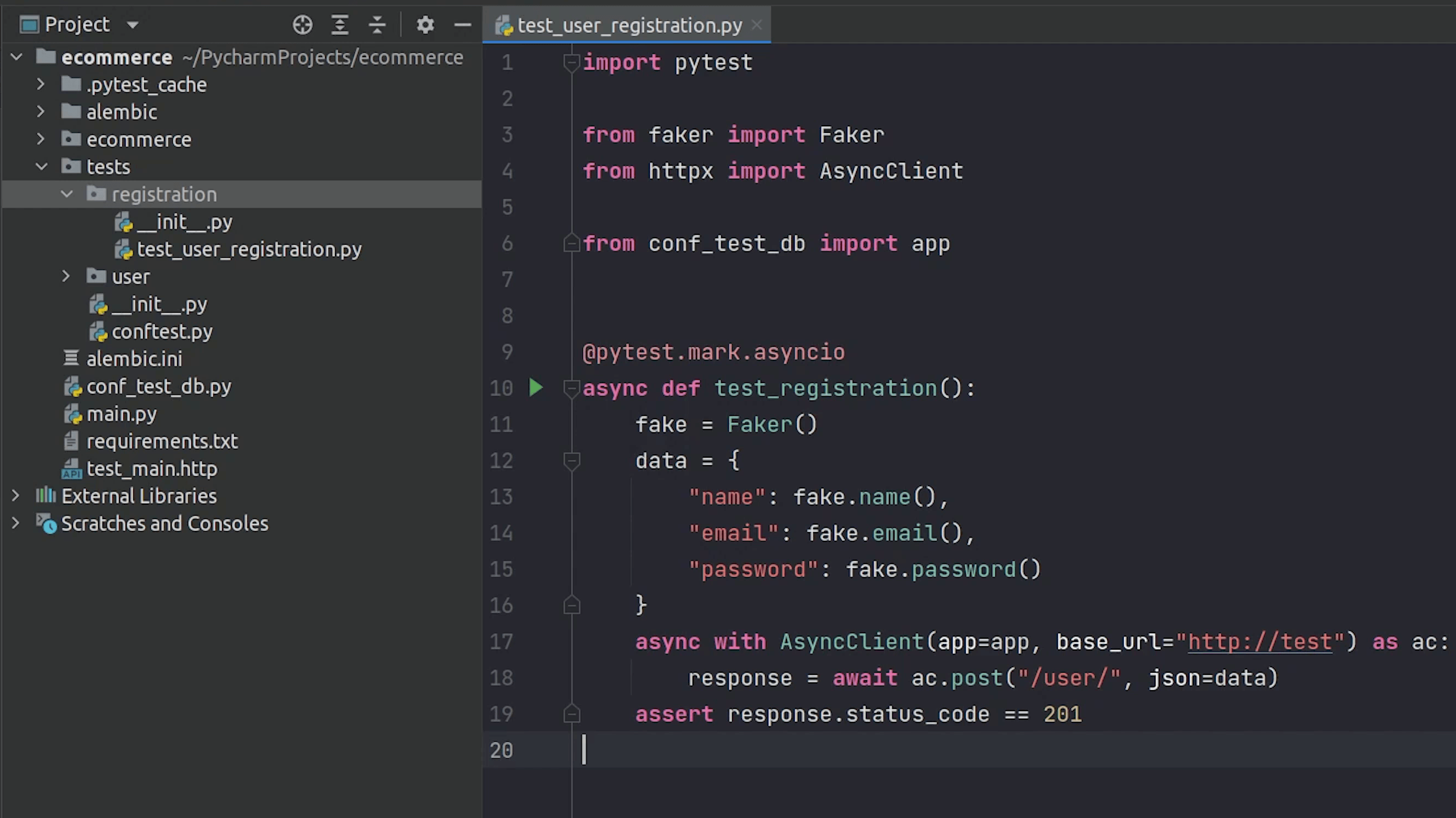
We are done with the implementation and expect the user will be successfully registered and 201 status code will be returned.
Let’s test it out.
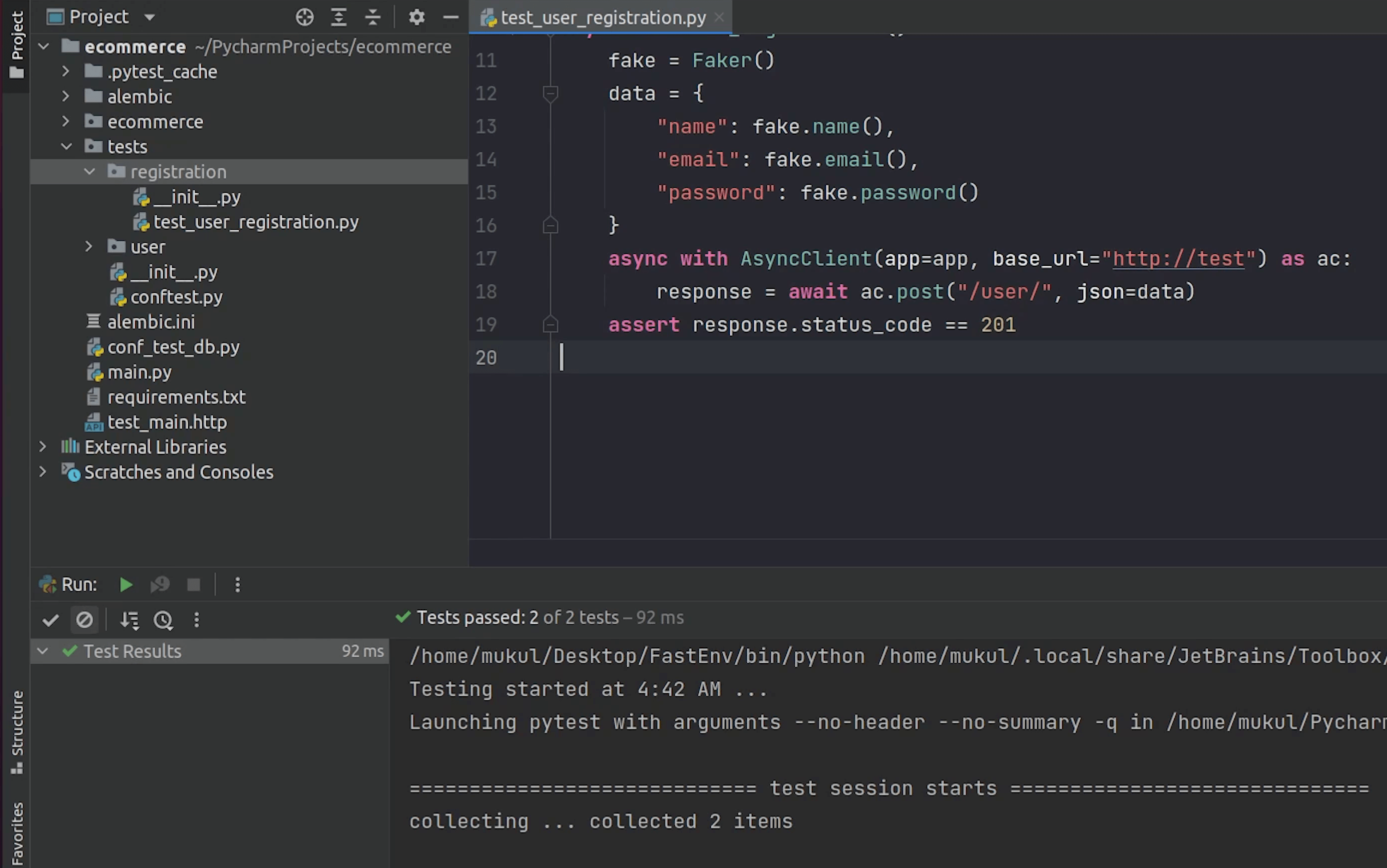
And yes, the test has passed.
We are done with the registration, next we will move to products.
We will be testing products and categories. I will create separate files for them.
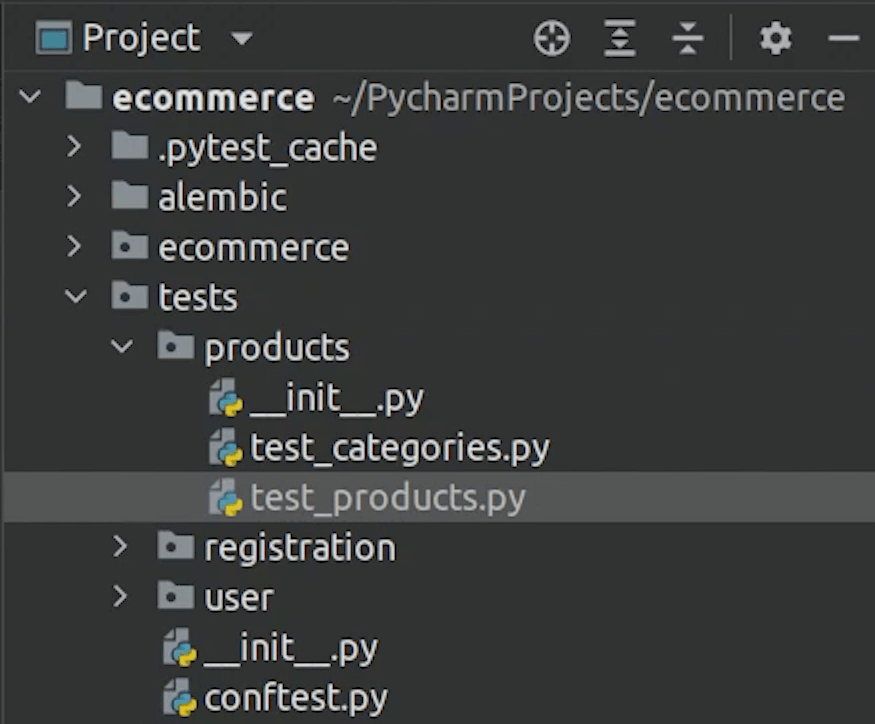
In Category, we will test: create, list and delete endpoints.
test_categories.py
import pytest
from httpx import AsyncClient
from ecommerce.products.models import Category
from conf_test_db import app, override_get_db
@pytest.mark.asyncio
async def test_new_category():
async with AsyncClient(app=app, base_url="http://test") as ac:
response = await ac.post("/products/category", json={'name': 'Apparels'})
assert response.status_code == 201
assert response.json()['name'] == "Apparels"
@pytest.mark.asyncio
async def test_list_get_category():
async with AsyncClient(app=app, base_url="http://test") as ac:
database = next(override_get_db())
new_category = Category(name="Food")
database.add(new_category)
database.commit()
database.refresh(new_category)
first_response = await ac.get("/products/category")
second_response = await ac.get(f"/products/category/{new_category.id}")
assert first_response.status_code == 200
assert second_response.status_code == 200
assert second_response.json() == {"id": new_category.id, "name": new_category.name}
@pytest.mark.asyncio
async def test_delete_category():
async with AsyncClient(app=app, base_url="http://test") as ac:
database = next(override_get_db())
new_category = Category(name="Electronics")
database.add(new_category)
database.commit()
database.refresh(new_category)
response = await ac.delete(f"/products/category/{new_category.id}")
assert response.status_code == 204
We are done with the category, next we will create a file for products where we will test the create and listing endpoints.
test_products.py
import pytest
from httpx import AsyncClient
from conf_test_db import app
from tests.shared.info import category_info, product_info
@pytest.mark.asyncio
async def test_new_product():
async with AsyncClient(app=app, base_url="http://test") as ac:
category_obj = await category_info()
payload = {
"name": "Quaker Oats",
"quantity": 4,
"description": "Quaker: Good Quality Oats",
"price": 10,
"category_id": category_obj.id
}
response = await ac.post("/products/", json=payload)
assert response.status_code == 201
assert response.json()['name'] == "Quaker Oats"
assert response.json()['quantity'] == 4
assert response.json()['description'] == "Quaker: Good Quality Oats"
assert response.json()['price'] == 10
@pytest.mark.asyncio
async def test_list_products():
async with AsyncClient(app=app, base_url="http://test") as ac:
category_obj = await category_info()
await product_info(category_obj)
response = await ac.get("/products/")
assert response.status_code == 200
assert 'name' in response.json()[0]
assert 'quantity' in response.json()[0]
assert 'description' in response.json()[0]
assert 'price' in response.json()[0]
shared/info.py
from faker import Faker
from ecommerce.products.models import Category, Product
from conf_test_db import override_get_db
async def category_info() -> Category:
fake = Faker()
database = next(override_get_db())
category_count = database.query(Category).filter().count()
if category_count <= 0:
category_obj = Category(name=fake.name())
database.add(category_obj)
database.commit()
database.refresh(category_obj)
else:
category_obj = database.query(Category).order_by(Category.id.desc()).first()
return category_obj
async def product_info(category_obj: Category) -> Product:
database = next(override_get_db())
payload = {
"name": "Quaker Oats",
"quantity": 4,
"description": "Quaker: Good Quality Oats",
"price": 10,
"category_id": category_obj.id
}
new_product = Product(**payload)
database.add(new_product)
database.commit()
return new_product
We are now done with the products, let’s test it out.
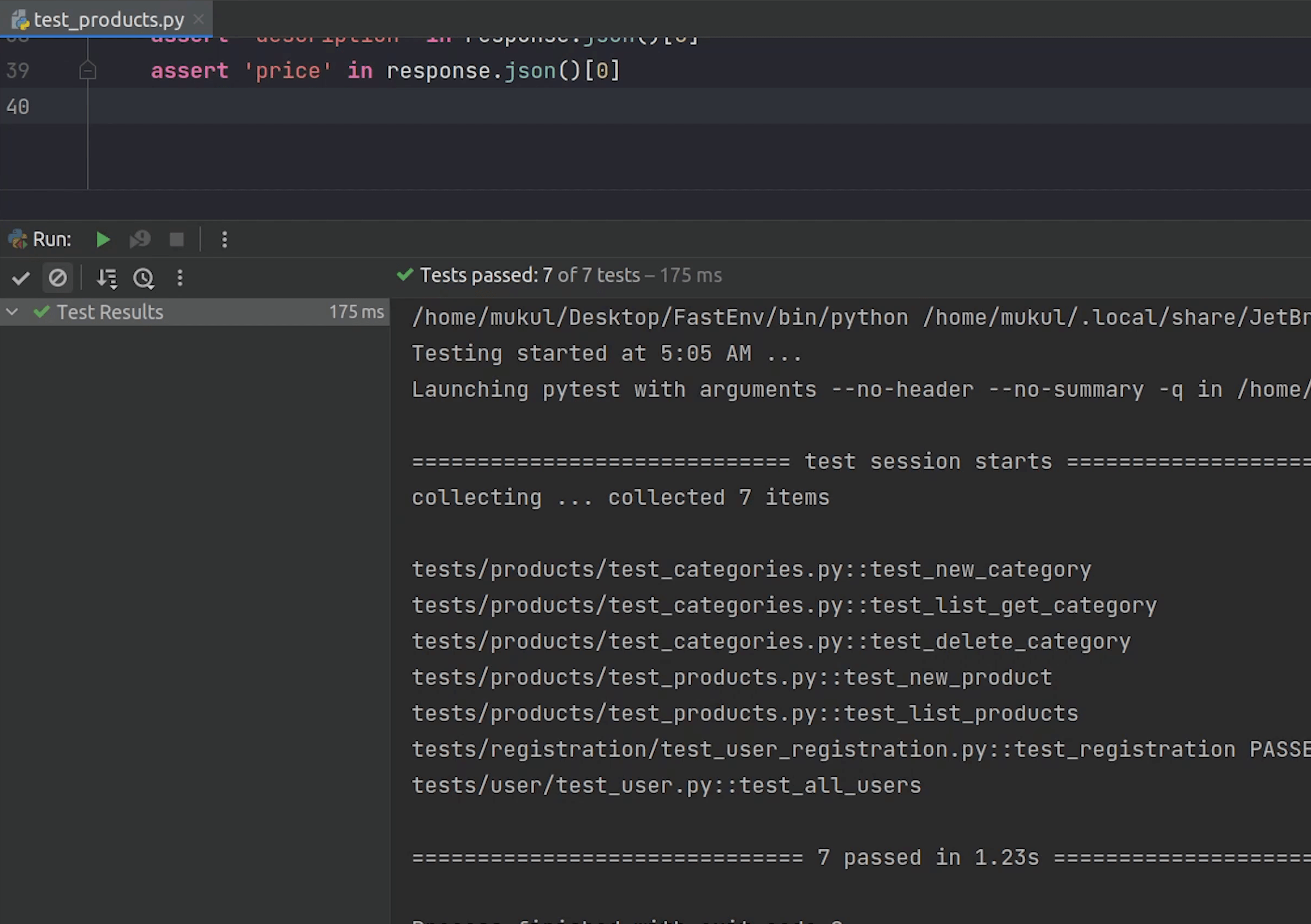
Yes, all the seven apis have passed successfully.
Next, we will complete the remaining modules like orders, cart, home and login.
Same kind of operation I will be doing, you can follow me.
test_home.py
import pytest
from httpx import AsyncClient
from conf_test_db import app
@pytest.mark.asyncio
async def test_root():
async with AsyncClient(app=app, base_url="http://test") as ac:
response = await ac.get("/")
assert response.status_code == 404
assert response.json() == {"detail": "Not Found"}
test_login.py
import pytest
from httpx import AsyncClient
from conf_test_db import app
@pytest.mark.asyncio
async def test_login():
async with AsyncClient(app=app, base_url="http://test") as ac:
response = await ac.post("/login", data={'username': 'john@gmail.com', 'password': 'john123'})
assert response.status_code == 200
test_cart.py
import pytest
from httpx import AsyncClient
from ecommerce.auth.jwt import create_access_token
from conf_test_db import app
from tests.shared.info import category_info, product_info
@pytest.mark.asyncio
async def test_add_to_cart():
async with AsyncClient(app=app, base_url="http://test") as ac:
category_obj = await category_info()
product_obj = await product_info(category_obj)
user_access_token = create_access_token({"sub": "john@gmail.com"})
response = await ac.get(f"/cart/add",
params={'product_id': product_obj.id},
headers={'Authorization': f'Bearer {user_access_token}'})
assert response.status_code == 201
assert response.json() == {"status": "Item Added to Cart"}
@pytest.mark.asyncio
async def test_cart_listing():
async with AsyncClient(app=app, base_url="http://test") as ac:
user_access_token = create_access_token({"sub": "john@gmail.com"})
response = await ac.get(f"/cart/", headers={'Authorization': f'Bearer {user_access_token}'})
assert response.status_code == 200
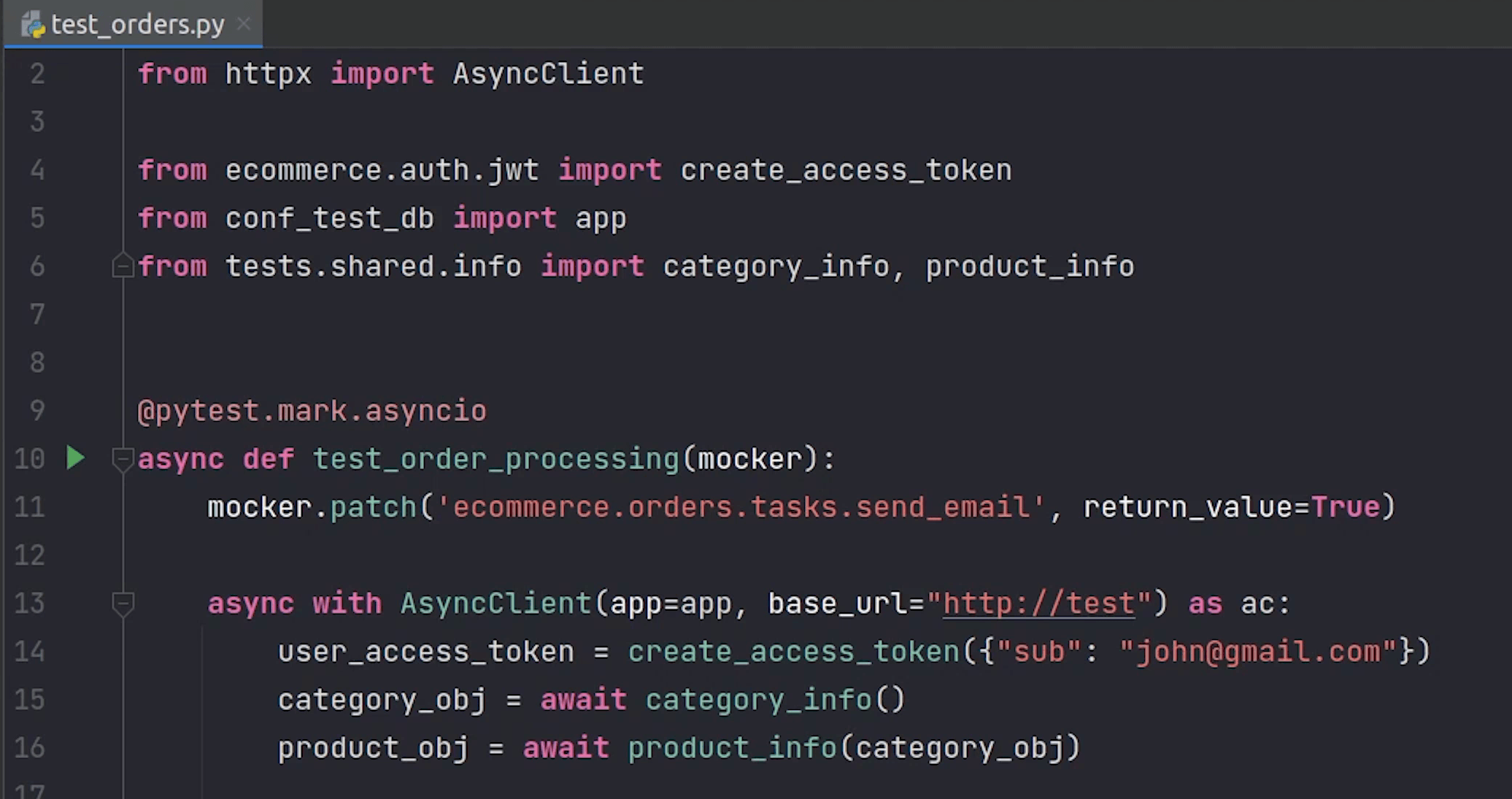
As you can see on line number 11, once you place an order successfully, you need to send an email. But this is something we need to do on a live server, not during a test, so I will try to do a mock which basically is going to return true.
Mocking means creating a fake version of an external or internal service that can stand in for the real one.
import pytest
from httpx import AsyncClient
from ecommerce.auth.jwt import create_access_token
from conf_test_db import app
from tests.shared.info import category_info, product_info
@pytest.mark.asyncio
async def test_order_processing(mocker):
mocker.patch('ecommerce.orders.tasks.send_email', return_value=True)
async with AsyncClient(app=app, base_url="http://test") as ac:
user_access_token = create_access_token({"sub": "john@gmail.com"})
category_obj = await category_info()
product_obj = await product_info(category_obj)
cart_response = await ac.get(f"/cart/add",
params={'product_id': product_obj.id},
headers={'Authorization': f'Bearer {user_access_token}'})
order_response = await ac.post("/orders/", headers={'Authorization': f'Bearer {user_access_token}'})
assert cart_response.status_code == 201
assert order_response.status_code == 201
@pytest.mark.asyncio
async def test_order_listing():
async with AsyncClient(app=app, base_url="http://test") as ac:
user_access_token = create_access_token({"sub": "john@gmail.com"})
response = await ac.get("/orders/", headers={'Authorization': f'Bearer {user_access_token}'})
assert response.status_code == 200
We have finally completed all the unit tests. Let me run and check the results.
Great! 13 of 13 tests have been successfully passed, and it was quite fast.
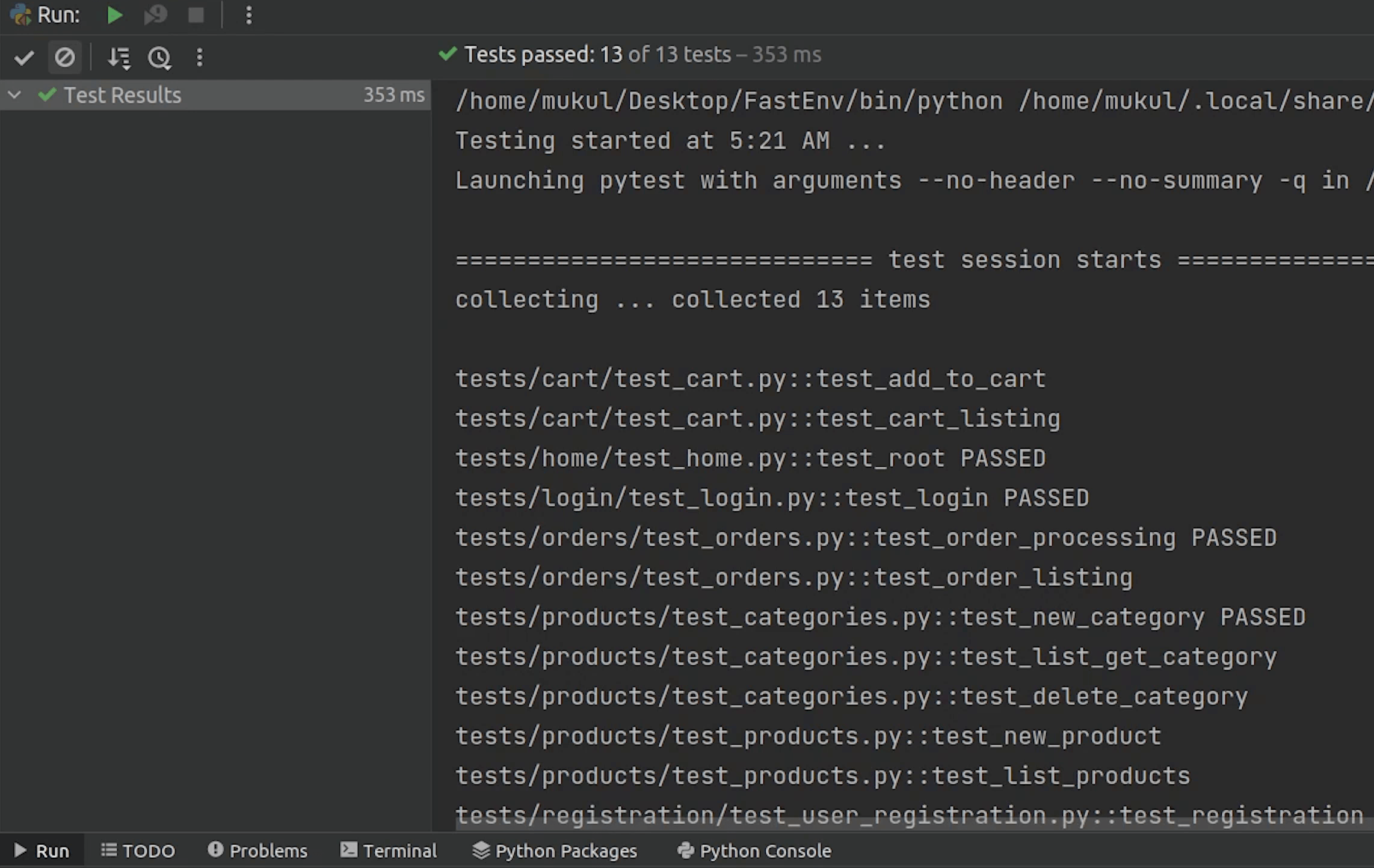
So, I hope you understand the testing flow. I do recommend checking the FastAPI pytest documentation if you want to get deeper into this topic.
I also recommend checking out this book :
Python Testing with pytest, Second Edition written by Brian Okken which is expected to be released in 2022.
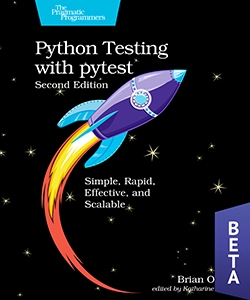
Image Credit: The Pragmatic Bookshelf
There are lots of things which we did not cover, but it’s covered in this book. I hope you will enjoy it.
I am going to see you in the next tutorial, where we will be focusing on deploying our application on Kubernetes.
